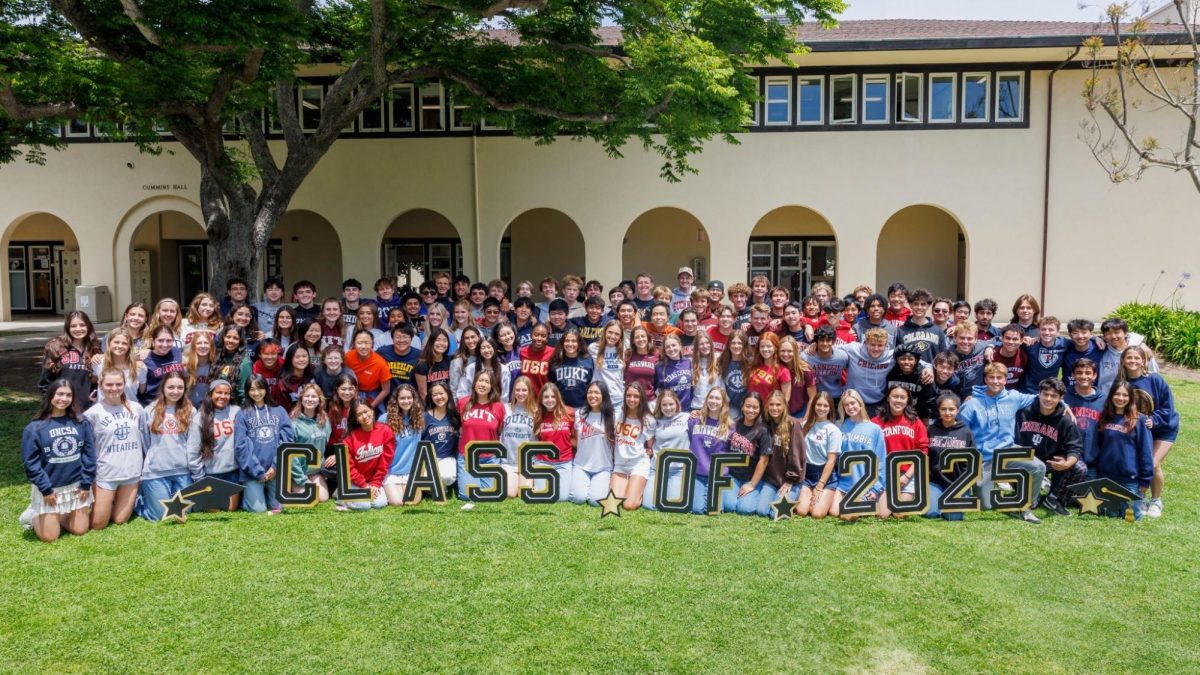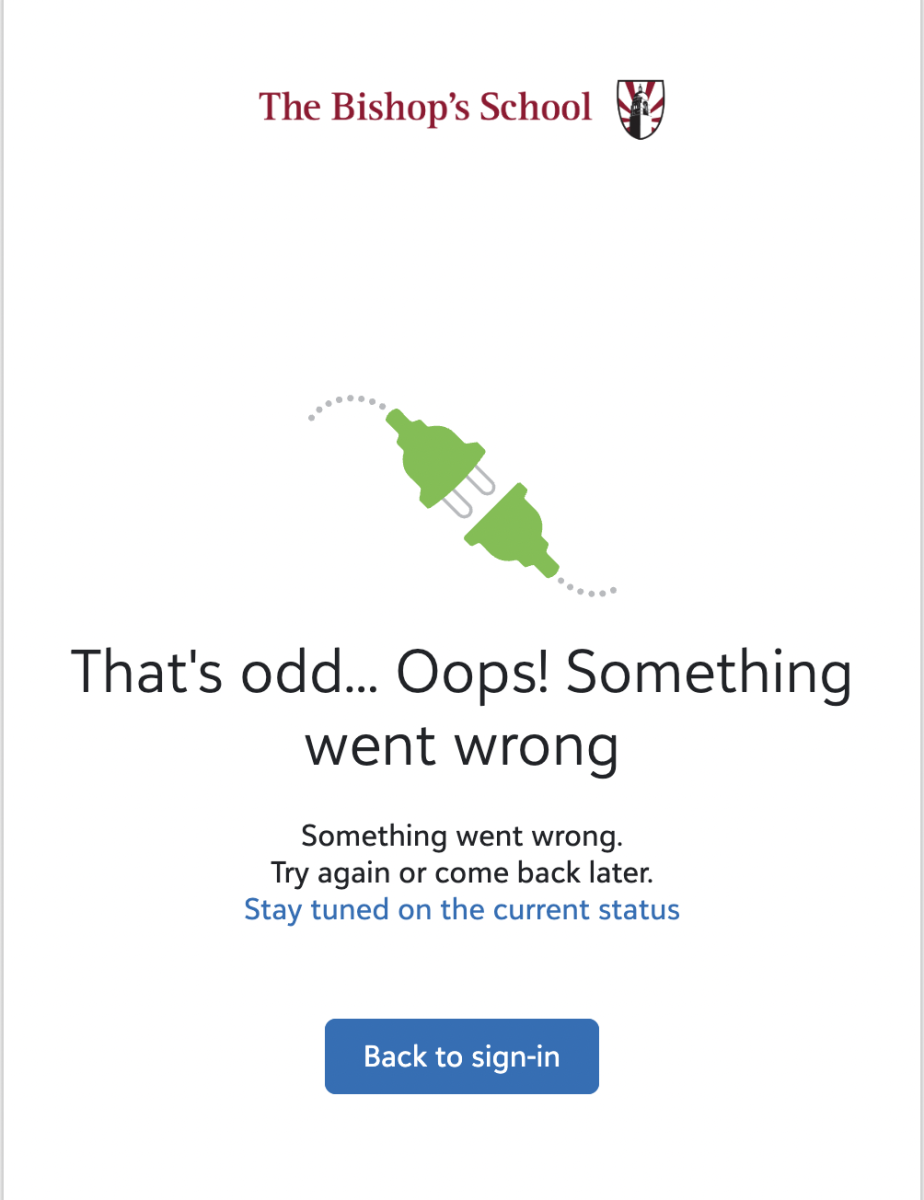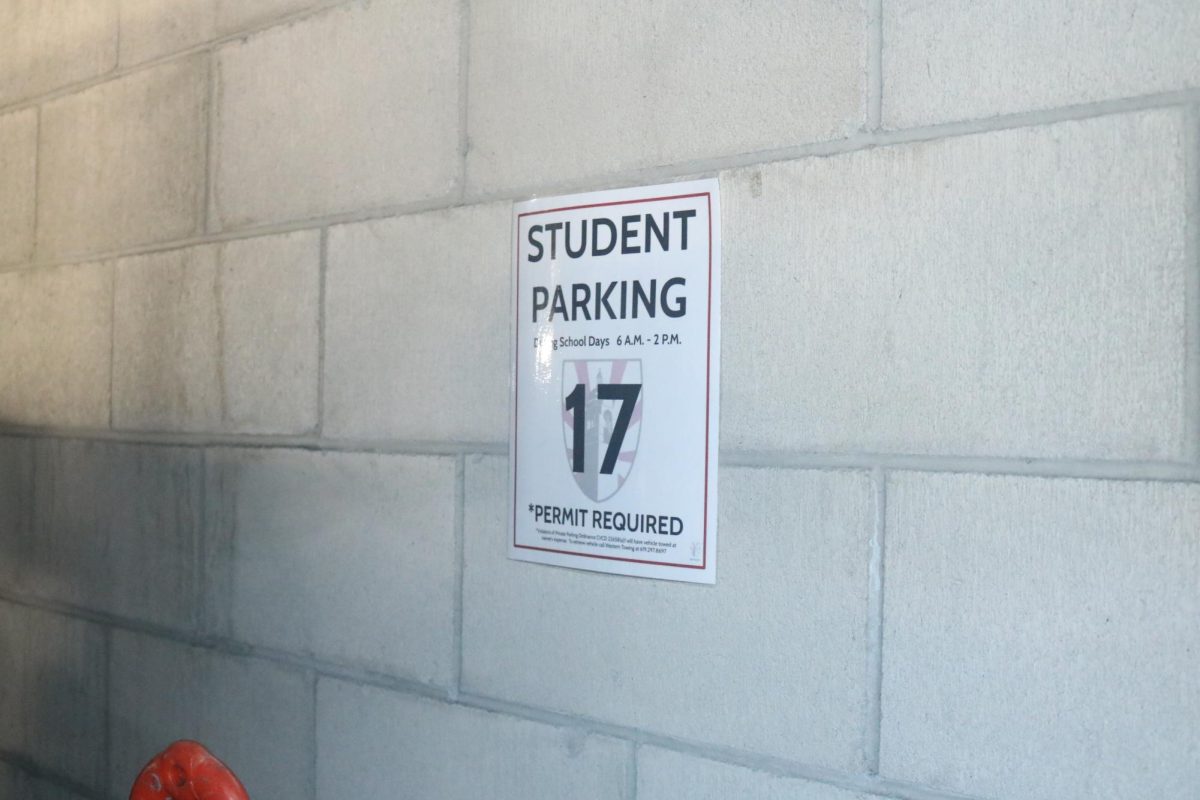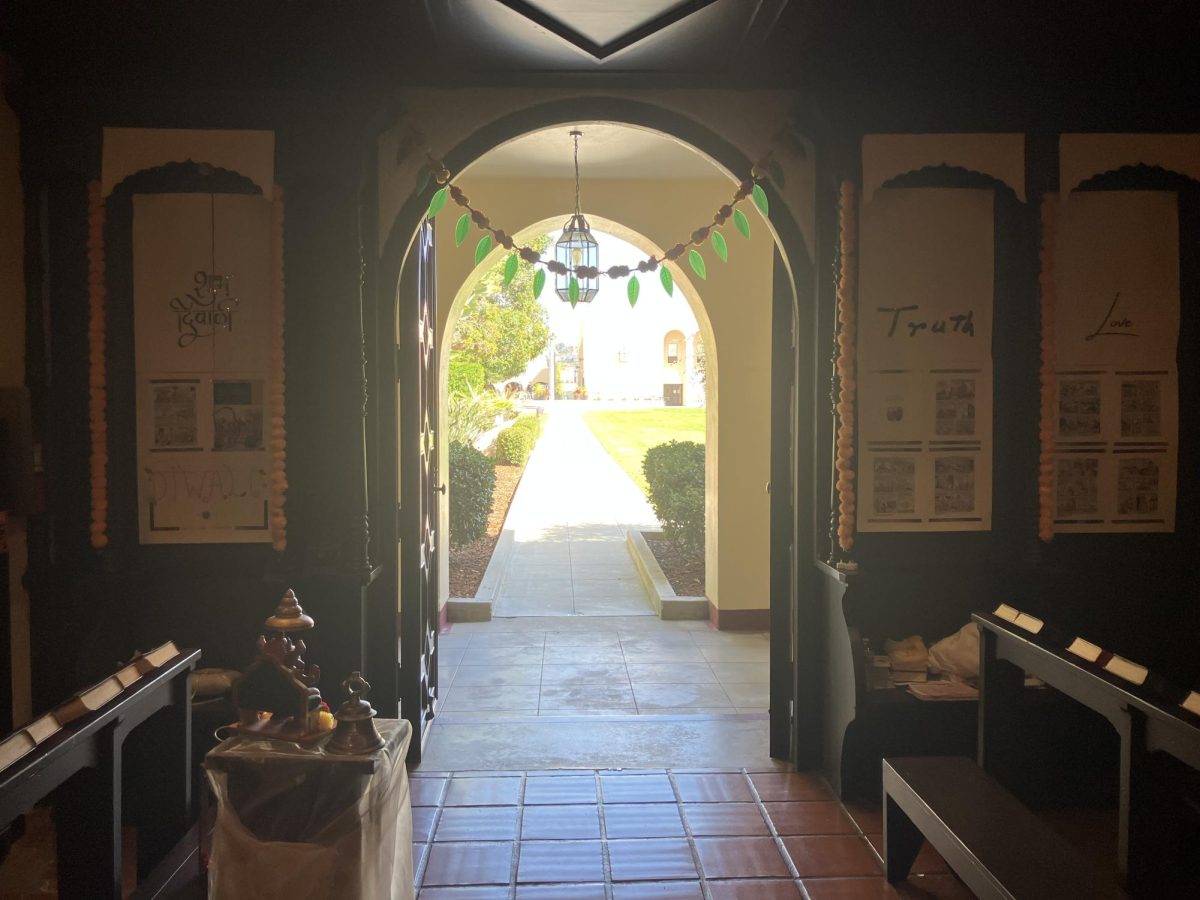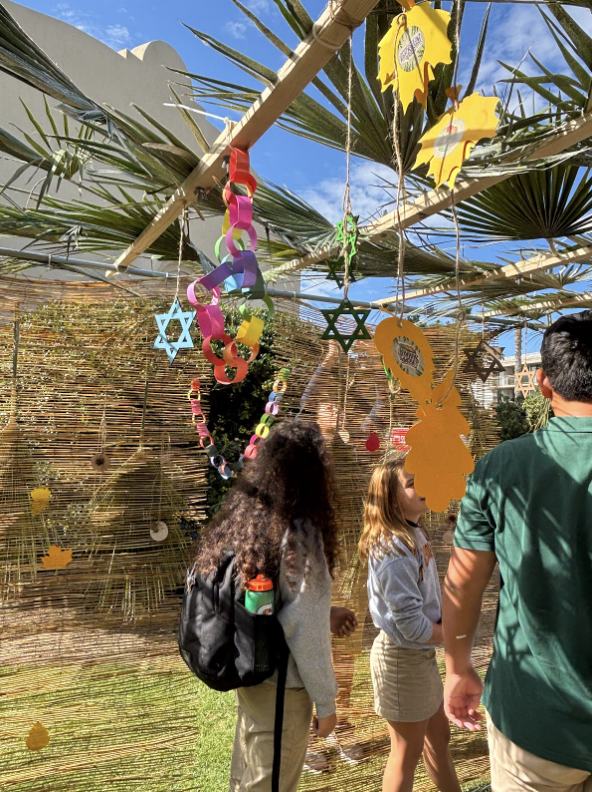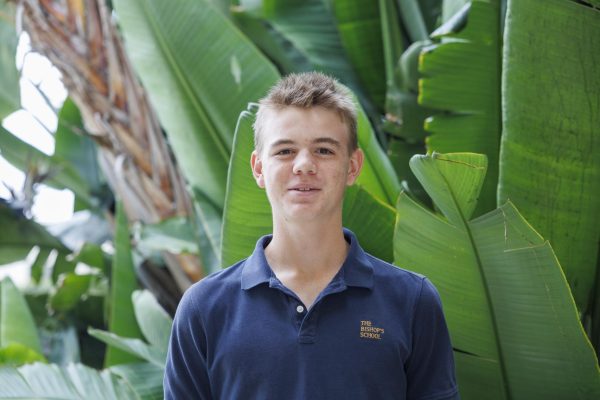On May 8th, 2025, seniors took part in the annual College Sweatshirt Day, sporting their new schools’ vibrant colors, fun mascots, and bold logos around campus for friends, teachers, and the entire Bishop’s community to celebrate. The tradition marks the culmination of the long and tumultuous college application process that, for better or for worse, defines a large part of the Bishop’s experience.
Some students will be traveling across the world for college, others will be staying close to home in San Diego. Some are heading to large state schools with over 40,000 undergraduates, while others are going to small liberal arts colleges with just a few thousands students. But if one thing is for certain, it is that all seniors have thoughts, reflections, and pearls of wisdom to share after months — no, years — of late nights and hard work during high school and throughout the college application process.
Note: Advice given in this article is based only on seniors’ personal experiences and perspectives. Students should always consult with their college counselor for guidance throughout the college application process.
Excelling in the Classroom
“A strong application isn’t all numbers,” said Angelina Kim (‘25), who plans to study computer science and electrical engineering at Stanford University next fall. Indeed, grades are not everything — activities, essays, and recommendations, for example, are also quite important. Still, grades are an important foundational aspect of an application — and seniors have some advice of how they became their best selves in the classroom.
For Ehiosa Bello (‘25), who is going to the University of Southern California (USC) for public health, excelling academically throughout high school began with forming study habits early on that worked for her. Ehiosa explained that going to office hours “almost every day” and prioritizing practice problems that relate to topics that she found most challenging in a class were habits she adopted.
Sophia Bao (‘25), who committed to Columbia University for political science, agreed with Ehiosa, adding that, along with helping her prepare for assessments, office hours are an opportunity to build meaningful relationships that can prove useful later in high school when requesting teachers for letters of recommendation. In fact, it was in History Teacher Dr. Charissa Keup’s office hours, while discussing the Women’s Liberation Movement, that Sophia realized Dr. Keup would write an excellent recommendation for her, given their shared love and passionate conversations about the topic.
Multiple seniors also emphasized the importance of striking a balance between their academic life and personal life. Neil Zhu (‘25), who plans on majoring in mechanical engineering at the University of Wisconsin-Madison, reflected that it is important to learn how to stay highly focused while doing academic work, but completely tune it out when being with friends.
For Ehiosa, she treats her social life as a reward at the end of studying, which keeps her focused and motivated. “If you find yourself wanting to get distracted and hang out with friends, just think that you can do it after the test,” Ehiosa said “It is like a reward system.”
Finding the Right Extracurricular Activities for You
“If you want to find the right extracurriculars, you’re going to have to find the wrong ones first,” said Ryan Qin (‘25). Ryan dropped Speech and Debate and Academic League during his freshman year after learning they were not for him. Soon after, he discovered his love for economics — mainly economics competitions. He now plans on majoring in economics at Yale University in the fall.
Ryan’s sentiment was shared amongst many other seniors, all who admit to having tried and dropped multiple extracurricular activities at Bishop’s. Sophia joined Speech and Debate and Model United Nations (MUN) in 9th grade. She soon dropped Speech and Debate, but remained a member of MUN to this day. Sophia knew MUN was right for her after a 10-hour MUN conference flew by. “Whichever activity you find yourself losing time doing, whichever activity you get so excited over that you don’t even know that you’re spending 10 hours doing it, that is the one you should always pick,” Sophia said.
For Angelina, she had to try and drop a robotics team before finding All Girls Stem Society (AGSS), a perfect intersection between her love for science and passion for gender equity. Now, she is a president of AGSS. “Immerse yourself in as many experiences as possible and find out which ones you’re most interested in and dive into those,” Angelina reflected.
Neil also warned against becoming involved in too much. “Don’t do too many things. Just focus on just a few things and do them really well.” For Neil, it was robotics and mountain biking. He recently competed in a global robotics competition, where he had a lot of success, which he attributes to his intense focus on robotics throughout high school.
Everything to Know About Passion Projects
A passion project is an independent, creative, and unique extracurricular activity that someone may create if there is no existing opportunity to authentically pursue their passions. For example, Angelina began her research in 10th grade, inventing drones to assist lifeguards and save lives. The company she created later, AngelTech, combined Angelina’s passions for public safety and technology in a unique way.
Passion projects are fully optional, but oftentimes can be a valuable addition to a college application. As Angelina explained, the key with passion projects is passion. “Don’t just start a club, or create a start-up, or do independent research just to put it on an application. ” Angelina said.
Ryan also had his own passion project throughout high school. Cyber Assist — a service club with the mission of “bridging the digital divide” through teaching the elderly how to use technology, which was first created by Ryan in 8th grade during the annual Social Innovation Challenge at Bishop’s. Ryan faced many challenges starting Cyber Assist, such as building relationships with senior centers, but says that Google, of all things, became his “best friend” through it all.
“To anyone who wants to do a passion project but doesn’t know where to start, honestly just go on Google,” Ryan said. “There’s a ton of people online who give really good advice.”
Founding a company or service organization is not the only way to do passion projects. For example, Nason Li (‘25), who is going to Stanford University in the fall to study political science and international relations, spent three months researching the cultural and military historiography of unidentified flying objects (UFOs). It was a topic that fascinated him, but there was no class or opportunity at Bishop’s to pursue this research. So, for an entire summer, Nason researched the topic, culminating in a nearly 15,000 word independent research paper. A year later, Nason’s essay was published in The Concord Review, a prestigious high school history publication that selects just 5% of submissions.
“The research project was authentic. It was definitely different from what those around me were spending time doing, but it was what I was genuinely passionate about so I would tell everyone to find their own UFO project. Find your passions and follow them no matter how weird people around you may think they are,” Nason reflected.
Building a Strong College List and Strategy
With thousands of colleges across the country, finding the right ones can be daunting. Public or private? Urban or rural? Warm or cold?
Ehiosa said that, for her, finding the right colleges started with knowing what she was looking for in a school. She liked California’s location and wanted to be on a big campus with lots of people. USC had all those things, along with a strong public health program.
“The best place to start is reflecting on what type of person you are and what you’re looking for. Consider everything from size to programs to just the campus feeling. Do you want a student body that is intense and competitive, happy and laid back, or some sort of mix of the two? Figure that out and then find colleges that fit that description,” Ehiosa explained.
Sophia had slightly different advice than Ehiosa. For Sophia, visiting college campuses was most essential. “Sometimes you have to stop thinking about every little factor and stat and just get onto the campus if you can. Watch the students. See if the campus energizes you, if it excites you, and, most of all, if it feels like it could be a home for you,” Sophia said.
Sophia still remembers her visit to Columbia University two years ago. Standing in the middle of the campus, she closed her eyes and listened to the city noises around her. She felt at home amongst all the noise and chaos. The energy of New York City excited her. She knew it was home. For others who visited, it may not have been a good fit, but for Sophia, it was home.
Lastly, Ryan explained that building a college strategy is as important as creating a college list. As much as finding schools that would be a nice fit, it is crucial to find ones that are also realistic options. This is especially true when considering where to apply early — the first round of applications that typically yield higher acceptance rates but often limit an applicant to one, or only a few, schools. As a result, selecting which college or colleges to apply early to can be especially difficult.
Ryan suggests being realistic, while still taking at least some level of risk given it is the round with the highest acceptance rates. For example, Ryan loved Massachusetts Institute of Technology (MIT) and Harvard University, but was realistic with himself. Even in an early round, his chances were low. And while Yale University’s early round was still extremely competitive, he thought it was a risk worth taking.
“If you have a dream school and you know you’re gonna regret not applying for it, just apply. Because it’s not the end of the world if you don’t get in,” Ryan said. “Don’t be too unrealistic. But also, don’t regret not applying.”
How to Crush Your Common App
The Common App, the online software that houses almost all college applications, with a few exceptions, is, much like creating a college list, very daunting. With sections ranging from activities to personal essays to school and personal information, it is hard to know where to even begin. Because of this, Angelina, Sophia, and Neil all recommend filling out the Common App as early as possible — preferably over the summer before senior year.
“It is a ton of work, not going to lie, so I would urge every junior reading this right now to do your Common App this summer,” Sophia said. “I know it is not what you want to spend your summer doing. But would you rather be doing it when you are also taking six or seven classes, doing all your extracurricular activities and sports, and writing all of your supplemental essays? I don’t think so.”
Ehiosa added that organization is also crucial. She suggests creating a Google Drive folder for college and having separate documents for each college. Then, copy all the essay prompts into each document and draft the essays on those documents rather than directly in the Common App. Ehiosa shared her entire Google Drive folder with her college counselor, which made it easy for them to both edit the essays during meetings.
“This organization was so, so important to me. There is so much you cannot control in this process, so make sure to feel control over the things that you actually can,” Ehiosa said.
Lastly, Nason said to “have fun” with the process. “Of course writing essays is a grind, but try to enjoy it. The more excited and passionate you are writing your essays and applications, the better they will be.”
Final Reflections: “It Will All Be Okay”
Ultimately, the college application process is unpredictable. As Sophia said, “you can do everything right — strong grades, cool activities, unique essays — and still get rejected. At a certain point, it is just outside of your control.”
With that being said, Ryan emphasized that, in one way or another, it all works out. “Look, either you get into a college or you don’t. Whatever. At the end of the day, it’s about how you spend your time at college, not what college you spend your time at,” Ryan said. “So if the process doesn’t end up the way you want it, then that’s their loss, not yours.”
Ehiosa reiterated this point. “Make the most of where you end up, and it will all be fine. If that means getting into the dream school, great. And if it doesn’t, then, still, great.”
Angelina closed with a reminder that she hopes no one ever takes a rejection as an indication of self worth. “Even if the process does not end up going your way, Bishop’s prepares us all to be such amazing people and students,” Angelina reflected. “Just continue being that type of person at whatever college you end up going to and you will excel no matter what.”
A correction was made on May 19, 2025: An earlier version of this article misstated the grade that Angelina Kim (‘25) started AngelTech. It was the summer before 12th grade, not 10th grade. Additionally, we allowed Angelina to change the phrasing of three of her quotes in order to better represent her beliefs about the college process. We sincerely apologize for the oversight and appreciate your understanding.


